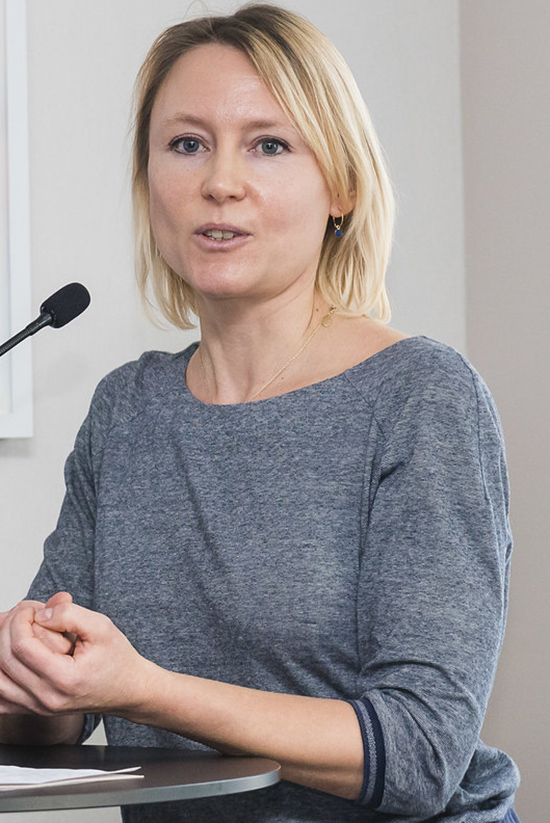- Topics
- Campaigning
- Careers
- Colleges
- Community
- Education and training
- Environment
- Equality
- Federation
- General secretary message
- Government
- Health and safety
- History
- Industrial
- International
- Law
- Members at work
- Nautilus news
- Nautilus partnerships
- Netherlands
- Open days
- Opinion
- Organising
- Podcasts from Nautilus
- Sponsored content
- Switzerland
- Technology
- Ukraine
- United Kingdom
- Welfare

Britain may be leaving the EU, but British shipping will continue with many partnerships in Europe – aided of course by transboundary union Nautilus International, Andrew Linington reports
How can the shipping industry recruit and retain more European seafarers, and what skills will they need as technology transforms the industry?
These questions – and many more – were hotly debated during a series of sessions held as part of the 2020 European Shipping Week in Brussels, and they came as new figures revealed that just 220,000 of the estimated 580,000 seafarers serving on ships operating in the EU are EU/EEA nationals.
Opening the 'Safe and social shipping' shipping' event, European Transport Workers' Federation (ETF) maritime transport policy officer Lotte Ockerman warned that it is very difficult to attract young EU seafarers and encourage them to stay at sea when working conditions are under constant pressure.

She said the ETF has developed the concept of a European Maritime Space for Socially Sustainable Shipping. This seeks to create a level playing field for shipping in EU waters, and to ensure that European seafarers are treated in the same way as shore-based workers.
Terje Hernes Pettersen, a lawyer with the Norwegian Seafarers' Union, highlighted the way in which current competitive pressures have impacted his members. With wages for Filipino ABs amounting to barely one-seventh of the rate for a Norwegian AB, many of the country's country's owners have flagged out to cut their employment costs.
Mr Pettersen said the proportion of Norwegian-owned tonnage on the country's mainland register has slumped from 65% to just 20% over the past 15 years. More than 1,400 Norwegian seafarers have lost their jobs in the past three years alone, he added.
Kim Levka, a union rep at Solstad Offshore, described the situation as awful. 'Many of the Norwegian seafarers who have been replaced by cheaper crews have been with their company for many years and have been loyal to the company,' he added. 'It is like being stabbed in the back.'
Jose Christian Castano, from the Spanish union CCOO, said things were as bad in his country, with the national fleet reduced from more than 800 ships to just 115 today.

'Flags of convenience have been the laboratory for today's globalisation and the EU must revive regulations to establish decent conditions for seafarers on European ships,' he warned.
Mikael Lindmark, from the Swedish union SEKO, said research among his members found that 50% are so tired after their working day that they are unable to do anything else, and one-fifth of women members reported being treated disrespectfully. Unless such problems are tackled, shipping will face a long struggle to attract bright young new entrants, he warned.
On the positive side, Mr Lindmark welcomed the Responsible Shipping Initiative, under which a growing number of cargo owners have committed to use only ships with demonstrably high standards.
Hannah Vik Furuseth, from the Scandinavian Institute of Maritime Law, described research which had showed that it would be possible, under both European and international law, for member states to impose regulations governing working conditions of seafarers serving on ships in their coastal waters and cabotage trades.
Adrien Alaux, from the Université d'Angersd'Angers, told the meeting that state aid for the shipping industry should be conditional on commitment to the employment and training of EU seafarers.
Follow this story
-
Careers
SkillSea state of play
- Telegraph
- 01 March 2022
-
Education and training
Nautilus members encouraged to complete SkillSea survey
- News
- 16 February 2021
-
Education and training
Training for tomorrow's world – what's new with the SkillSea project
- Telegraph
- 17 July 2020
-
Education and training
'Overburdened with obsolete knowledge' – seafarers' opinions of STCW in the SkillSea project
- Telegraph
- 21 April 2020
-
International
Waves of change glimpsed for skills at sea
- Telegraph
- 10 March 2020
-
International
Working together on skills training
- Telegraph
- 10 March 2020
-
Education and training
SkillSea project 'future skills' maritime survey
- News
- 11 November 2019
-
Education and training
Nautilus takes part in talks on future-proofing EU maritime skills
- News
- 18 June 2019
-
Careers
Union backs new EU research into future seafarer skills
- News
- 23 November 2018
Tags
More articles
'Overburdened with obsolete knowledge' – seafarers' opinions of STCW in the SkillSea project
Waves of change glimpsed for skills at sea
Barriers to work highlighted by female seafarers at European Shipping Week
Dr Cleo Doumbia-Henry, president of the World Maritime University, noted that the global level of female seafarers has remained at around 2% for nearly 30 years, hardly increasing in all the time that the statistics have been collected.
